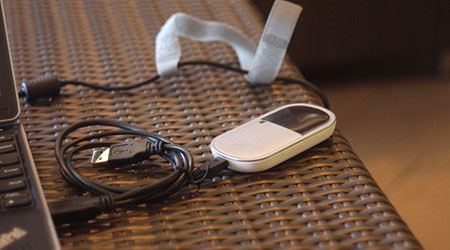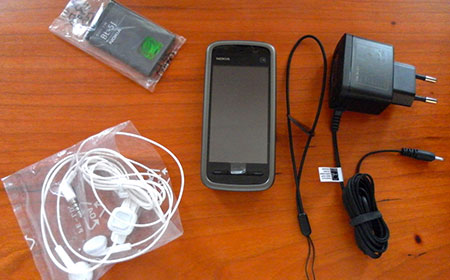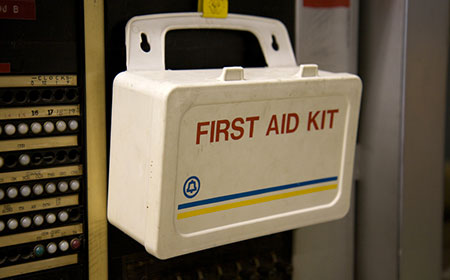
You’re just a couple months removed from the culmination of your high school career, a period in which you conquered all challenges and built a foundation for the rest if your life. You accomplished your academic goals, have the accolades to show for it, and now are prepared to begin coursework at your dream school. You have an abundance of friends with whom you plan to keep in touch for the rest of your life. They made you feel like you always belonged.
Now it’s time to start over again. You’ll be in the same boat as every other freshman: Until the first semester is over, your GPA will be nonexistent. Everyone will be a stranger, save for the few people you may know from high school, for the first few weeks before you assimilate to campus life. It’s essential that you properly deal with the changes by developing positive habits that will stick for the rest of your college career.
As a newly independent adult who’s surrounded by many people who care, you’ve probably received an unsolicited piece of advice or two from people who’ve been there before, such as your parents. Although you may think you have it all figured out, you’ll undoubtedly encounter new challenges for which you won’t have an immediate solution, which is why you should absorb all the wisdom you can before embarking on the newest chapter of your life.
Movin’ on up: You’re not in Kansas Anymore
Perhaps the best part of beginning your college career is being miles away from your parents. No longer will they be looking over your shoulder at all times, and now you can do whatever you want. The bad news is that you’ll be far removed from your comfort zone, as you they won’t be around to tend to your every need. You’ve lived with the same people for your entire life, and now you’ll be living in a completely new environment with, most likely, complete strangers. Even the most socially adept person can implode in a lousy living situation. It’s your task to make sure things don’t deteriorate as soon as the going gets rough.
- Get to know your roommate/suitemate/floormates: These are the people you’ll be seeing every day for the next semester at least, so it’s essential that you establish a friendly rapport by getting to know them. Remember that everyone, like you, is starting anew and looking for friends. If you and your roommate don’t immediately hit it off, be patient and give the relationship time to develop. Even if you have little in common with him or her, you can still get along just fine.
- Establish boundaries from the start: That isn’t to say you should overtly lay the ground rules as soon as you walk in the door, but you should make it clear in a non-confrontational manner that you plan to respect their space, possessions, and sensibilities, implying that you expect the same from them. To be friendly, you should offer them food and let them borrow your stuff, but when it goes too far, don’t be afraid to confront them.
- Never let a problem fester: The most miserable roommate situations are the ones where all communication is passive aggressive, reflecting the build-up of multiple issues that haven’t been resolved. While it’s advised that you let the first instance of disrespect go, you shouldn’t hesitate to broach the topic the second time it occurs to prevent it from happening again. Are they eating all your snacks? In a civil manner make it clear that you don’t mind sharing with them here and there, but they are your snacks and they’re intended to satiate your midday or late night hunger.
- Recognize that you’re not perfect: This may come as a surprise, but you may not be the best roommate in the world either. If you live with someone, their imperfections will inevitably surface. During the frustration that comes with a roommate disagreement, understand that you may have contributed to the problem as well. Make it clear to your roommate that you’re willing to make changes to ensure they feel more comfortable, and hopefully they’ll do the same for you. If they don’t, befriend your Resident Assistant.
The good thing about living in the 21st century is that you’re not entirely alone, even if you’re 2,000 miles away from home. Technology can serve as your trusty sidekick as you become acclimated to life on your own. Here are a few apps that will help with your transition to living on campus.
- Skype: Not only does Skype mobile allow you to see and speak to a family member or friend from anywhere, but Skype-to-Skype calls are free with Verizon, a service with more than 100 million subscribers. So, if your homesickness lasts a little longer than expected, you won’t go broke trying to comfort yourself.
- Sleep Cycle Alarm Clock: Now there’s a smart alarm clock for your smartphone, ensuring you’ll never sleep through a class after a long night of partying. The Sleep Cycle Alarm Clock maximizes your sleep time by waking you in your lightest sleep phase in a half-hour window that ends at the time you set the alarm, making it easier for you to get up and feel well-rested.
- AroundMe: Living in a new place means you’re entirely unfamiliar with your surroundings. Instead of wandering around like a lost dog, you can employ the help of AroundMe, which “identifies your position and allows you to choose the nearest Bank, Bar, Gas Station, Hospital, Hotel, Movie Theatre, Restaurant, Supermarket, Theatre and Taxi.”
- HopStop: Many college students leave their cars behind when going off the college or simply choose not to drive to save money. Finding the most efficient routes through public transportation, however, can be a difficult. HopStop solves that problem, connecting you from Point A to Point B to Point C. Prefer to take a cab? It’ll estimate travel time and the cost of service.
- MyEffinRoommate: If you’re burdened with an insufferable roommate with whom you’ve tried and failed to reason over and over again, then you may get some temporary comfort in finding that there are worse roommates out there. MyEffinRoommate, like the site, brings you real life stories that are “insanely hilarious.”
Eating Your Way to Success

The two biggest battles waged by college freshman come against their roommates partly due to the fact that they didn’t heed the above advice and the Freshman Fifteen, those extra pounds that quickly accumulate after you’ve stopped exercising regularly, drink more, and regularly consume calorie- and carb-heavy foods served at your campus cafeteria and fast food joints. Not only will getting out of shape impact your chances with the opposite sex, which, let’s face it, is a large part of the incentive to live on campus, but it will also affect your ability to function to your fullest potential each day. Bad food can lead to sluggishness, and, conversely, sluggishness can lead to the consumption of bad food.
Part of becoming an adult and living independently is learning how to live life in moderation. If you don’t somewhat discipline yourself, you’ll find things quickly spinning out of control. This applies to eating, time management, and striving to achieve your goals. The effectiveness of your routine is dependent on each component that holds it together. For example, if you decide to grab a late-night burger on the evening before a busy day of classes, you might wake up the next morning unwilling to pull yourself up and make it to your first class. It’s a slippery slope. To avoid it, you should establish a healthy and inexpensive eating routine.
- Eat naturally: If you’re dependent on a meal plan, then you may be tempted to go for those calorie- and carb-heavy foods. However, there are almost certainly other options on campus from which to choose. Opt for foods in their natural state devoid of artificial preservatives. Eat plenty of fruits and vegetables. Hit up the salad bar. If a food item looks like it will have you keeled over in an hour, use common sense and avoid it.
- Buy a cookbook and cook: Cooking is a great way to save money, and when you cook a meal, you have full control over the ingredients. You can spend a few dollars at the store and prepare a dish that will last several meals. You can save even more money by purchasing store brands over brand names. A survey from Consumer Reports found that doing so saves an average of 30% and the tastes are indistinguishable from the more expensive alternatives.
- Drink plenty of water: Alcohol and caffeine dehydrate, and you need water to replenish your body. If the running water in your dorm isn’t good, buy a water filter and use it often.
The other advantage of living at home all those years was having all your meals taken care of by your parents, who, more likely than not, ensured you ate healthily. Mom won’t be permanently entrenched in your dorm room kitchen, unfortunately, but you can solicit the advice of a few apps that are nearly as smart.
- UniEat: College students value simplicity and convenience, and UniEat, a cookbook designed for them, fits the bill. It provides low-maintenance recipes, categorized by “Budget Meals” and “Minimal Washing,” that “keep your wallet and belly full.”
- Healthy Grocery Lists & Food Scanner: The title is self-explanatory. This app helps you determine which foods are healthy and which are not, according to your personalized diet, by simply scanning them. It also enables you to compose a healthy grocery list that will keep you disciplined while grocery shopping.
- GoodFoodNearYou: When you’re in a bind and don’t have the time to eat in or on campus, dial up GoodFoodNearYou to find just that. With nutritional information from more than 250,000 restaurants, you’ll be sure to find something that won’t interfere with your grownup eating habits.
Your Education: That Other Reason You’re in College
Amid the endless partying that comes with your first several weeks on campus, you may forget the reason you’re there in the first place: to get an education. That means you have to get up and go to class, even if most of your professors don’t take attendance, which is why you should make use of the Sleep Cycle Alarm Clock app. Re-enter the dreaded word: discipline. To be successful academically, you have the find the right balance between your social life and your study time, a task at which many students fail miserably.
- Manage your time wisely: Your first priority should be to ensure you have enough time devoted to your studies each week. Plan your weeks according to your syllabi, which will detail most of the work expected from you during the semester. Then factor in other commitments, such as work and activities for campus organizations. The remainder of the time can be used to party.
- Create or find a comfortable study environment: Regardless of whether it’s in your dorm room, the library, or an empty classroom, you should have a go-to place in which to study. Ideally, that place is quiet, free from disturbances, and comfortable. It should be a place where you can spend hours at a time.
- Utilize campus resources: If you’re struggling in a subject and need help, you might be able to find on-campus tutors with whom you can study. Postings with available times and locations can be found on your school’s website. Also, it’s important that you communicate with your professors as needed. Have a question about an assignment? Visit them during their office hours or send them an email. Some professors are more responsive than others, as their schedules, and personalities, vary.
You can manage your living situation and your diet with apps, so why not do the same with school? The average college student is often overwhelmed by the amount of work with which they’re tasked amid the other challenges of living on their own. Keeping track of everything using only your noggin is near impossible.
- Springpad: This is an app that’s purposed to get things done. You can record your tasks and notes and access them at a later time. Take pictures, scan barcodes to get more information on an item, and collaborate with others. Few apps are as versatile.
- iStudiez Pro: Every detail about your academic career can be stored in iStudiez Pro, including your class schedule and your updated GPA. Its Smart Summary function provides you with your events for the day, performing the function of an interactive planner. What’s more, you can manage all your assignments, from daily homework to major papers, using its Assignments Review function.
- Evernote: Your life as a college student is consumed by note taking. Evernote consolidates all your notes between different devices, organizing them so you can easily access them from anywhere. You can snap a picture and record audio notes to save time. It’s one of those apps that you can’t imagine life without once you’ve started using it.

 Rich Kiker is the Director of Online Learning at a K-12 school district in Pennsylvania, a blogger, an online professor, and a Google Certified Apps for Education Trainer. Other consulting roles include eLearning design, social learning, technology pathways development, and 1 to 1 computing. He can be reached at
Rich Kiker is the Director of Online Learning at a K-12 school district in Pennsylvania, a blogger, an online professor, and a Google Certified Apps for Education Trainer. Other consulting roles include eLearning design, social learning, technology pathways development, and 1 to 1 computing. He can be reached at 




















































